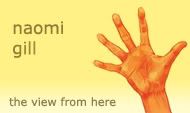
What, one page in and she's giving up already? Is this the same girl who reads the encyclopedia for fun? What new low is this?
Well, at least the Encyclopedia is written in English! (Modern English, anyway. Shakespeare is in English too, but that's not always easy to tell at first glance.)
Well, at least the Encyclopedia is written in English! (Modern English, anyway. Shakespeare is in English too, but that's not always easy to tell at first glance.)






5 comments:
Oh, come. Sure, Elizabethan English doesn't have all the latest colloquialisms, like '23-skidoo,' but it's not all that different from contemporary American English.
Seriously, I know what you mean. Four centuries and a major ocean have put some distance between that glove maker's son and us. One thing I appreciate about books like Riverside Shakespeare is that they are annotated, with definitions and (sometimes) discussions of the words and phrases that were in use then, but not so much now.
(I'm enjoying your MQC, BTW.)
Four centuries, a major ocean, and, in the case of that book, type so tiny I felt the need to find a magnifying glass. X.X My eyes!
Didn't Shakespeare make up a lot of his own language? I remember in English class we learned that Shakespeare made up his own language based on the English spoken in his day, with a few references to classic literature (among other things).
Correct me if I'm wrong.
@Journo: Not quite. He used standard English for the time, but he made up words and provided words with new meanings. For instance, 'anon' used to mean 'soon.' But since the guard in MacBeth kept delaying going to the door even though he kept saying 'anon,' it came to mean 'eventually, maybe.'
Oh, OK!
Post a Comment